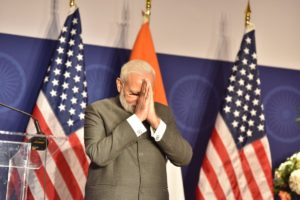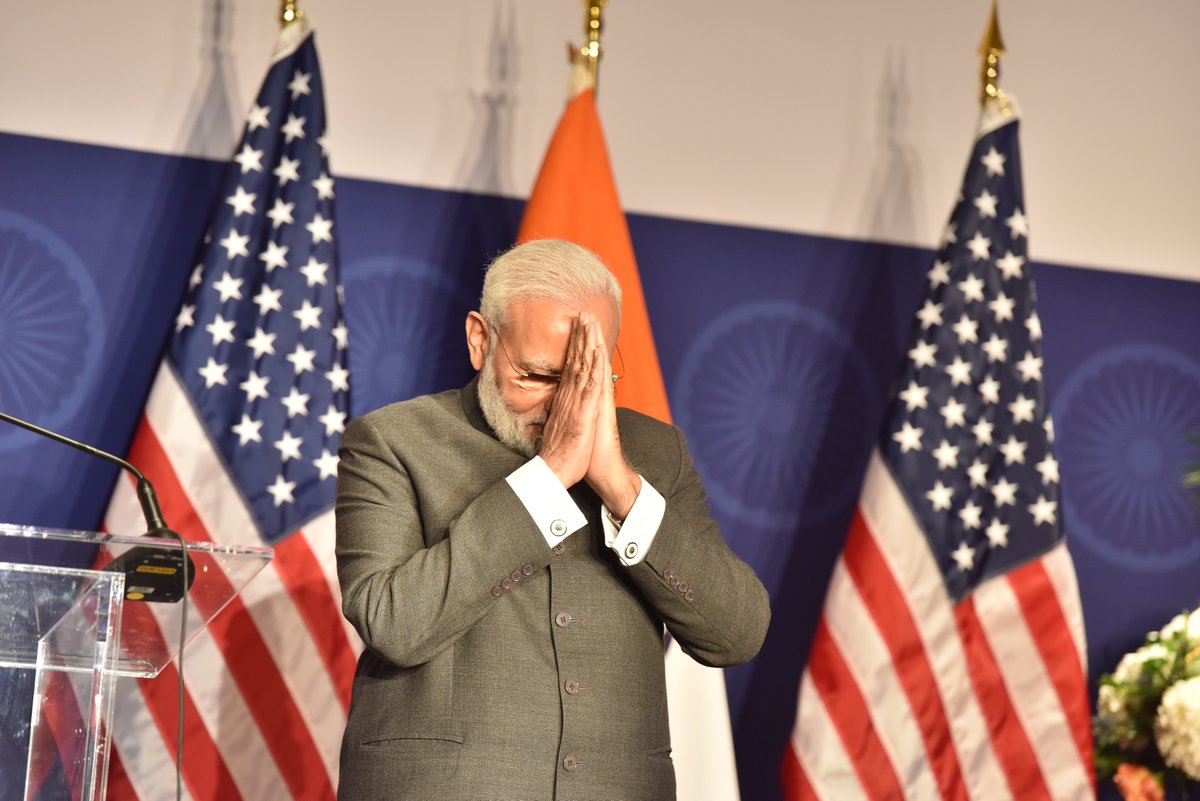Davos– Hardselling the country to global investors, Prime Minister Narendra Modi on Tuesday said India’s reforms have touched almost all sectors and the country is set to become a $5 trillion economy by 2025, riding on its vast market and strong and stable fundamentals.
“Our present development agenda is based on five pillars. First and foremost, we do understand that our systems need to change. Hence, we are persisting with far reaching structural reforms. Thus, our first pillar is our mantra of reform, perform and transform,” Modi said while addressing the plenary session of the World Economic Forum.
 He said: “India is an investment in future,” also adding that: “Indians accepted in one voice and moved towards a less cash society and a unified tax system in the form of GST.”
He said: “India is an investment in future,” also adding that: “Indians accepted in one voice and moved towards a less cash society and a unified tax system in the form of GST.”
Saying reforms have touched almost all sectors, Modi said: “This specially includes: formalising the informal economy through demonetisation and digital transactions, direct tax reforms and expansion of the tax base, banking reforms, DBT (direct benefit transfer) through UID (Unique Identification) and bank accounts, minimising discretion, combating corruption and controlling inflation. Also, we have consistently reduced fiscal deficit and current account deficit.”
He pointed out that over the last three years, the Indian government has resolved a number of regulatory and policy issues facing businesses, investors and companies.”
“In this direction, we have also undertaken bold FDI (foreign direct investment) reforms. More than 90 per cent of the FDI approvals have been put on the automatic approval route. As a result of these changes, there has been a sharp rise in FDI in the past three years — from $36 billion in 2013-14 to $60 billion in 2016-17.”
Modi said the country is using technology to transform governance and deliver public entitlements and services. “I have been saying that e-governance is easy and effective governance.”
“Our government agencies are finding innovative ways to create a business friendly environment. We have now developed the digestive capacity for various technologies. Our young people have already distinguished themselves in the realm of technology, innovation and entrepreneurship.”
About infrastructure development in the country, he said: “Our objective is to reduce the logistics cost transaction time for various activities. Also, improvement in infrastructure have already enthused people as they are beginning to see a qualitative change in their lives.”
He said India needs to be fully integrated with the world in major policy areas. “May be it is the regime of entry and exit of businesses, for IPRs (intellectual property rights), or arbitration and commercial adjudication, we have moved very decisively to brush up the framework to bring them in line with global best practices.”
Regarding inclusive economic development, he added: “As I said, the biggest reason for fracture within the countries is inequality and disparity leading to divide and distrust. Personally, I have always said that development process should be inclusive and encompassing. We have tried in our own way to bridge the income and opportunity divide.” (IANS)





